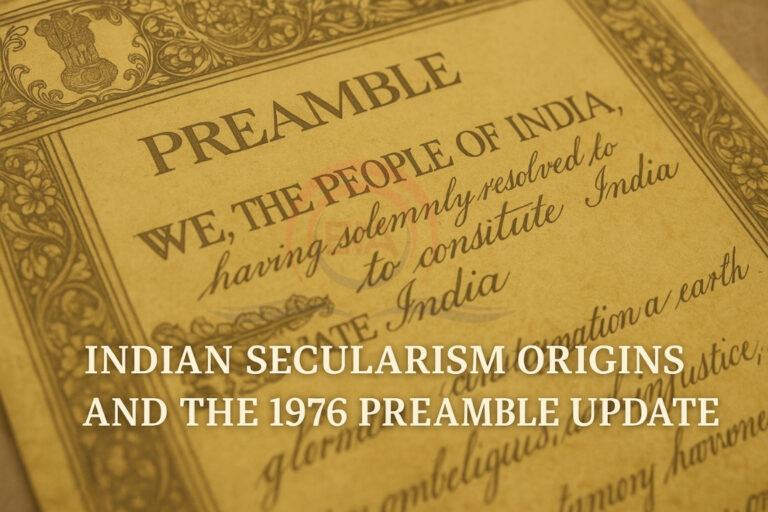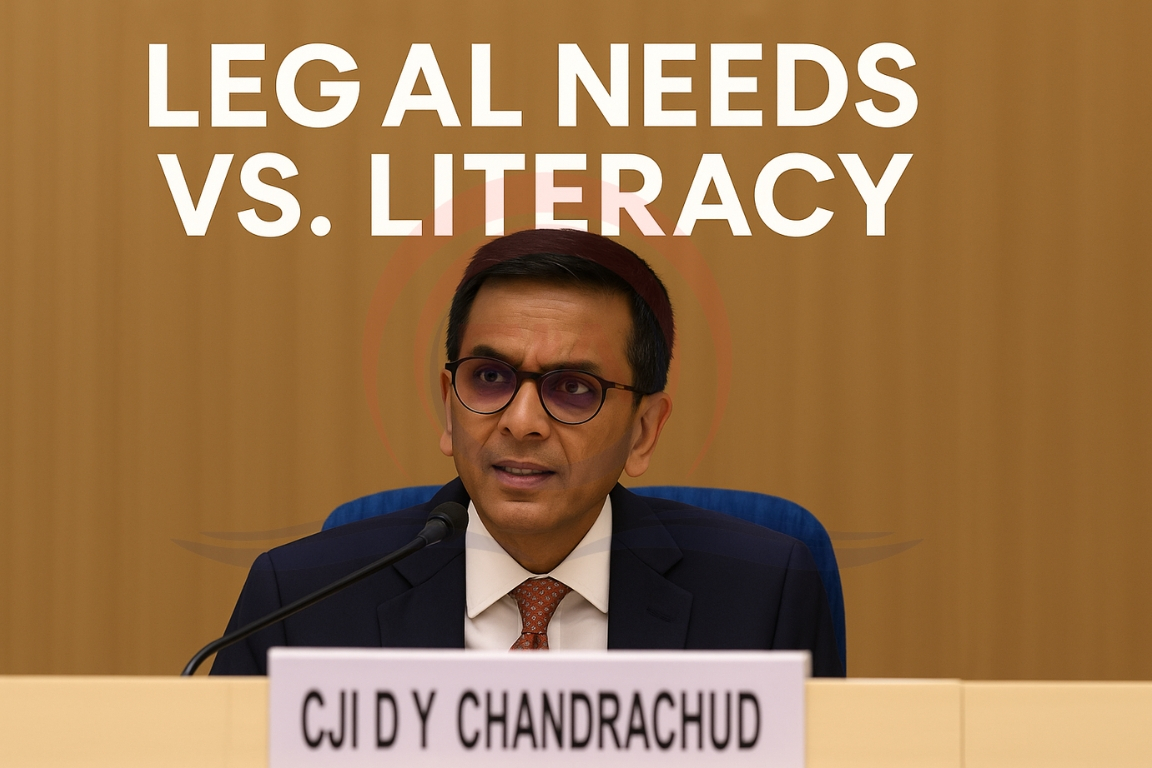The debate around the inclusion of “secular” in the Preamble of the Constitution in 1976 continues to generate political and academic interest. Faizan Mustafa highlights how secularism has been a foundational value of India even before it was formally added during the Emergency.
Introduction
- Secularism in India is not a Western import or Emergency-era imposition. It reflects ancient Indian values like those seen in Ashoka’s edicts and ideals from the freedom struggle.
- Though the word “secular” was added to the Constitution in 1976, the spirit of secularism was always present.
Historical Roots of Indian Secularism
- Nehru opposed organized religion and led efforts for a secular polity.
- Ashoka’s Dhamma promoted religious tolerance and ethical governance.
- His Rock Edicts 7 & 12 advocated harmony among religions and discouraged glorification of any one faith.
- The 1928 Motilal Nehru Report and the 1931 Karachi Resolution demanded state neutrality in religious matters.
- Even V.D. Savarkar’s 1944 draft Constitution stated that India should have no state religion.

Secularism in the Constitution
- Though the word “secular” was not originally included in the Preamble, the idea was always implied.
- The Constituent Assembly rejected the proposal to begin the Constitution with “In the name of God.”
- No member, including Syama Prasad Mookerjee, ever demanded a Hindu Rashtra.
- Supreme Court declared secularism a part of the “basic structure” in Kesavananda Bharati case (1973).
- Many key constitutional ideas (like federalism or rule of law) also are not directly mentioned but are accepted as fundamental.
Benefits of Secularism for All Religions
- Secularism allows religions to operate without state interference.
- When a religion becomes a state religion, the state may control or dilute it, as seen in Islamic states or Anglican Church history.
- In India, even the Ram Temple consecration was done per state decision, not religious authority.
Comparative Models of Secularism
- England: Has an official church but ensures equal rights to all religions.
- Greece and Ireland: Acknowledge dominant religions in their Constitution but provide equality to all faiths.
- Pakistan and Sri Lanka: Declare or favour a religion but provide legal safeguards for minorities.
WHAT IS SECULARISM?
Secularism means that the State has no official religion. It treats all religions equally and does not favour or discriminate against any religion.
- Citizens are free to follow, practice, and preach any religion of their choice.
- The government cannot force or ban any religion in public or personal life.
- Religious groups cannot interfere in government policies and vice versa.
Words Added to the Preamble in 1976 (42nd Amendment)
In 1976, the following three words were added to the Preamble of the Constitution of India:
- Socialist
- Aims to ensure equal distribution of wealth and reduce inequality.
- Promotes welfare policies and supports the weaker sections.
- Secular
- Ensures that the State remains neutral in matters of religion.
- Gives freedom of religion to every citizen.
- Integrity
- Refers to national unity and territorial integrity.
- Aims to maintain the onenness and indivisibility of India.
Conclusion:
India’s secularism is rooted in ancient values and was a clear goal of its Constitution makers. The inclusion of the term in 1976 only clarified what was always intended. Rather than rejecting secularism, we must reaffirm its role in maintaining religious freedom and unity.





